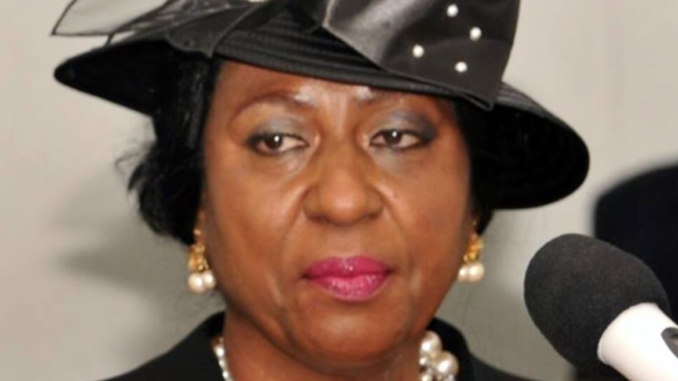
Abia State has just escaped from a constitutional maelstrom. Trouble started late in January when the state House of Assembly, in conjunction with Governor Okezie Ikpeazu, unilaterally suspended the state’s Chief Judge, Theresa Uzokwe. Ikpeazu, acting on a resolution of the House, had appointed another judge, Obisike Orji, in an acting capacity. His action plunged the state into a transient constitutional crisis, compelling the National Judicial Council to intervene.
The NJC’s decisive action, which suspended Orji and mandated Ikpeazu to swear in the most senior judge in the state, was the ultimate redeemer. On February 5, Ikpeazu belatedly removed Orji and swore in a new judge, Onuoha Ogwe, in an acting capacity, in line with the provisions of the 1999 Constitution. This remedial step showed that, in the first place, the crisis was needless. It would not have occurred had the legislators and the governor adhered to the provisions of the constitution in the removal and appointment of an acting CJ.
The conflict erupted late in 2017 when Ikpeazu reportedly dissolved the Abia State Judicial Service Commission and set up a parallel JSC. Legally, the JSC is headed by the CJ of a state. Uzokwe alleged that the action undermined her office. The rigmarole also saw the termination of the appointment of the Chief Registrar of state’s High Court, Elizabeth Akwiwu-Chukwu. It was a delicate moment, which forced the NJC to strike.
In December, the NJC, headed by Walter Onnoghen, the Chief Justice of Nigeria, established a committee to investigate the case. In the course of the committee’s work, a group of Abia elders in the judiciary pleaded with the NJC to allow an amicable resolution to the dispute. The matter, however, escalated on January 22 when the House received a petition against Uzokwe. Swiftly, the lawmakers acted upon the petition, passed a motion for her removal and the appointment of another judge.
It is disturbing that 18 years into the Fourth Republic, neither the executive nor the legislative arm of government has learned to play the game by the rules. The House of Assembly was imprudent in its interpretation of Section 292 1a (ii) of the Constitution, on which it based its recommendation to remove Uzokwe. This section only gives the assembly the right to recommend to the governor the removal of a judge and not to recommend a replacement. By doing the latter, it usurped the powers of the NJC.
Apparently, the reckless assaults on the integrity and independence of the judiciary by some top members of the executive arm of government, at times in collusion with the legislature, are not new. In 2012, the Kwara State Government had written to the state assembly, seeking the removal of the then CJ, Raliat Elelu-Habeeb, on alleged corruption and other acts of misconduct. The legislators purportedly found her guilty and she was removed. But her removal did not stand the test of the law. Therefore, the Supreme Court voided her dismissal.
Although her case is a precedent, the executive in Rivers State and at the federal level decided not to be guided by it when acting in their separate jurisdictions. In 2011, a disagreement between the then President, Court of Appeal, Ayo Salami, and the then CJN, Aloysius Katsina-Alu, came to a head when Salami accused Katsina-Alu of asking him to rig the Sokoto State Governorship Election Tribunal case at the Court of Appeal. Instead of acting on Salami’s accusation, the NJC recommended his suspension to the then President, Goodluck Jonathan. Jonathan went ahead to suspend Salami, who, however, got a reprieve from the court for his reinstatement. For two years, Jonathan disobeyed the court ruling, and illegally kept Salami in limbo.
The then Rivers State governor, Rotimi Amaechi, was also caught up in this web with his appointment of the state’s CJ in 2013. Basing his action on the recommendation of the state’s judicial commission, he appointed Peter Agumagu as the CJ. A Federal High Court voided the appointment but Amaechi stuck to his guns.
In the Abia episode, the proper thing was for Orji, who was initially appointed by Ikpeazu, to rescue himself. A law officer should never be a party to executive impunity and legislative rascality. However, if they go ahead to accept illegal appointments, the NJC, which is the disciplinary body, should apply the full weight of the law against them. In this wise, the NJC’s decision to query Orji for accepting the appointment by Ikpeazu, when he was not the most senior judge in the state, is a welcome development.
To protect the judiciary from abuse and intimidation, a think tank, the British Institute of International and Comparative Law, recommends that the appointment and removal of judges should not be left solely in the hands of the executive and legislature, but should involve a judicial commission. In Britain, both Houses of Parliament have to petition the Queen to remove a judge, according to the British judiciary. However, no English High Court or Court of Appeal judge has ever been removed from office under the 1701 Act of Settlement.
Any country that toys with the rule of law unwittingly promotes anarchy. Therefore, before moving against judges, governors and the Houses of Assembly need to carry the NJC along as the constitution demands. This will bring sanity to the system and instil confidence in litigants in the ability of the judiciary to deliver impartial judgements.
END

Be the first to comment